Starting from June 2nd, kindergartens and special education schools will reopen in waves, and parents can themselves determine whether or not they wish to send their children back to kindergartens this semester.
Worried about the adjustments that come with starting early years education? Here are some pragmatic tips given by an experienced educator in the field to prepare you and your family for the upcoming changes.
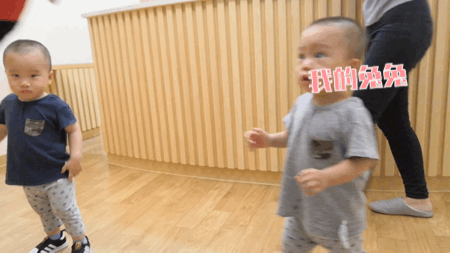
(Photo provided to Newsgd.com)
Q: How do I help a child who cries when going to school?
A: Usually children do enjoy being at school, they will mainly cry during separation time.
- First of all, we need to find out the reason why the child is crying when going to the centre. Children can take 2 to 6 weeks to adapt to a new routine. Parents have to try to be as positive as possible otherwise the separation time will become an issue and children will feel it. Parents have to try to be positive, consistent during the separation and be quick.
- Sometimes, by bringing something to school can help the child to have a smoother separation. It is like a link between home and school. The child knows that the toys will go back home, so they will too. Often children cry because they don't know when they will see their mum again and how long they will stay separated. The child can also make something at school for mum and bring it home.
- If the child is at an age where he understands you well, you can tell him or her about their routine at school. For example "first you will remove your shoes, then wash your hands, then make bread, then work by yourself, then in a group, sing songs, and then mum will be back to pick you up." The child will realise that all these steps are true and that mum will really come back, so he/she will feel more secure during separation. (You can talk to the teacher about the routine, to make sure what you say is really happening.)
- Communicate with the teachers about your feelings and see how you can solve the problem together. Maybe there is a reason why the child is crying: maybe they are faced with a challenging task, or had an argument with a friend among many other things. When parents have a good relationship with teachers and trust them, the separation is also much easier as parents don't appear worried and so the child will automatically feel less anxious.
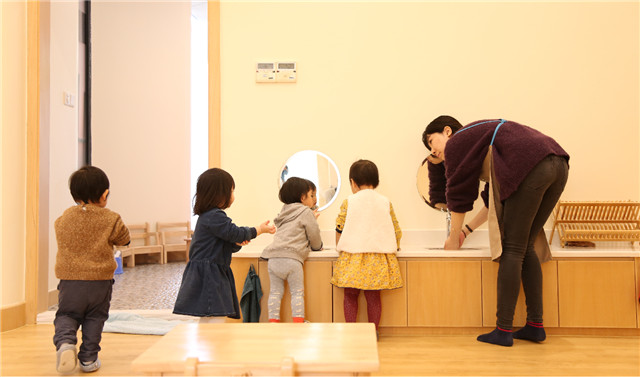
(Photo provided to Newsgd.com)
Q: When is the best time for my baby to attend early education?
A: When the parent is ready, the baby is ready. It is important that the whole family agrees (at least most of the family) with the new routine of taking the baby/child to an early educational centre. It is important for the child to make friends, to learn to socialise, to be in a different environment than home and learn new skills. It is an opportunity for parents and grandparents to have some time for themselves while the child is at school.
- The family should also be happy with the new timetable and routine for the child. Ideally it is better for a very young child to stay at school for just half a day, as they still need some time at home spending quality time with family. Later, they can move to a full day program.
- It is good to have your baby under the responsibility of professional teachers who will spend time observing them and following their personal development. Teachers will give you some suggestions on how to continue at home the exercises started at school
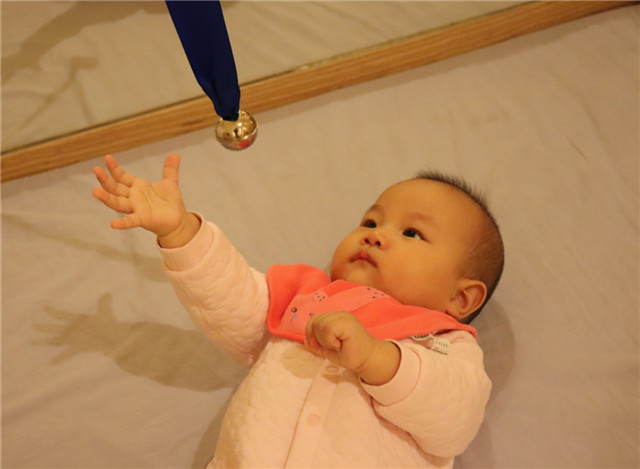
(Photo provided to Newsgd.com)
Q: How do I choose the right centre for my baby?
A: It is important that you share the same values as the school. Parents need to feel comfortable and happy with the environment and confident in bringing their child to school. Each child is different, you have to find a place that will suit your child.
- Choose a place where education is a priority. The first three years of life are the most important, your child has to be followed in a professional manner in an environment where he is challenged and can develop skills such as independence, self-confidence, self-discipline, and concentration.
- The teachers are also very important. If you can meet teachers and see how they interact with your child, it will be even better. It is essential to have passionate professional teachers.
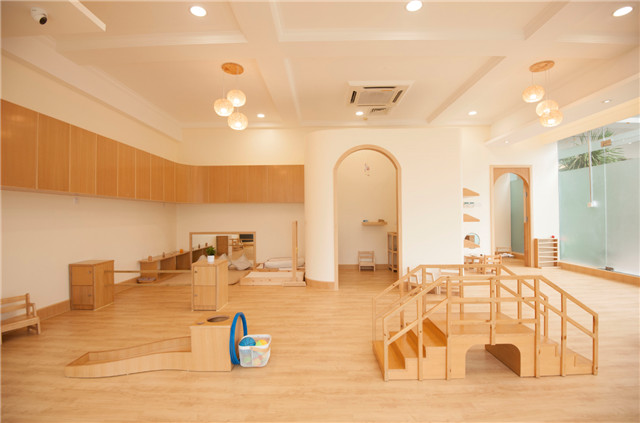
(Photo provided to Newsgd.com)
Q: What are the most important things for early education at home and in a centre?
A: To be consistent, develop trust with the child, being able to show them what is and what is not acceptable. Don’t give up when the child is crying when asking for something, be fair and understand the child's needs and interests.
- We should always make sure the child feels they have their own space, own time to work and be them self. The adult should not 'invade' the child's space all the time, otherwise the child will start to depend on the adult and not be independent.
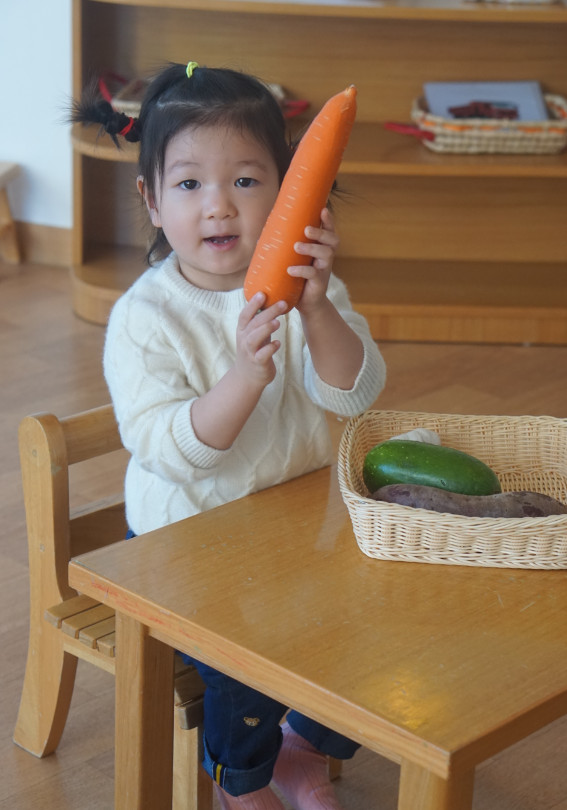
(Photo provided to Newsgd.com)
Q: Does my baby need to go to a kindergarten and an early education centre at the same time?
A: It depends on the family schedule and the child. If you decide to do both, it is fine, but make sure with centres have same values. Otherwise the child will be confused and will start to not listen and to test the adults.
- You need to ask yourself the reason for taking the child to two learning centres and what will it bring to the child. It might be too much and the child will get tired, not wanting to participate at both centres. Maybe one centre forms the main place, and the other one more an extra activities for the child.
- It is important for a child under six years old to spend time at home with their family. To cook, play, read, do science experiments, go on outings... This is also part of the child's personal development. Parents are the role model for a child, who wants to learn from them.
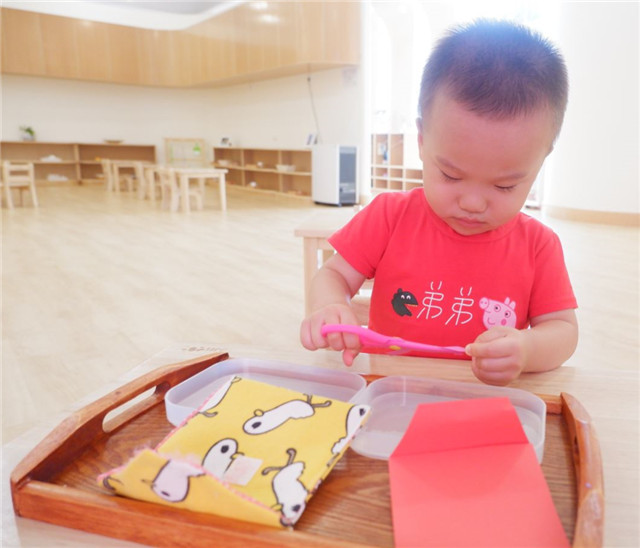
(Photo provided to Newsgd.com)
Q: Is doing extra activities out of school or at home to improve literacy and numeracy bad for children's creativity?
A: There is a time for everything. We have to be careful of not teaching too much to the child and 'stuffing' information. Yes, children are very smart, and they will remember a lot, but might not understand. They will do it to keep his parents happy, as children love their parents so much, they don't want to disappoint them. This can affect children's creativity.
- If children learn some new concepts at home, then are introduced to the same ideas at school, the child will refuse to work at school saying "I have done this before." The problem is that at school we have materials and different exercises according to the topic, but the child may not be willing to work as they have the feeling they have done it already. If children learnt the wrong way to hold a pencil at home, it is harder to correct. If parents want to do some activities with children at home, it is very good, but we recommend that they communicate with the teacher and see what is the best to do.
- Reading, writing and mathematics are usually the three subjects parents want to focus on. Be careful of not going too fast, otherwise the child will miss the foundations and instead of being 'advanced' he will be 'delayed' because did not remember with understanding. Always communicate with the teacher in charge of the child.
- Children's creativity can be developed anywhere at anytime. We can be creative in so many different ways, adults have to be the role model first. We can be creative in the way we dress up, the way we tell a story, the way we play with lego, the way we write a letter... Do not misunderstand creativity, imagination and fantasy.

(Photo provided to Newsgd.com)
The above advice was given to us by Leticia de Lassus, an early childhood educator who has been working in Guangzhou as the head of JJB International Montessori AMI Centres and teaching director with over 15 years' experience working with Montessori Pedagogy in many different countries.
JJB Group, headquartered in Guangzhou, provides high quality early education services for children in the Guangdong-Hong Kong-Macao Greater Bay Area. Its Ersha centre has been included on the list of interior design award of the 2019 Dezeen Awards.
Author: Monica Liu
Editors: Simon Haywood & Keane Wong




